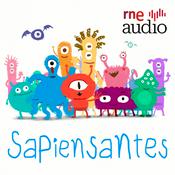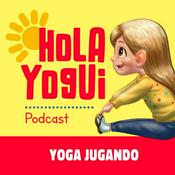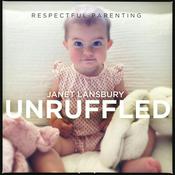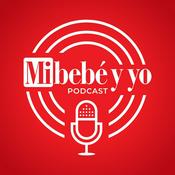29 episodios

Ep 29: Why is she the only one thinking about it? with Allison Daminger
19/12/2025 | 58 min
Check out Allison's website https://www.allisondaminger.com/ follow me on Instagram and TikTok @beahappierparent Full videos of episodes available on YouTube @alexindadland Keywords parenting, cognitive labor, mental load, gender roles, household dynamics, essentialism, couples, equity, caregiving, family responsibilities Summary In this conversation, Allison Daminger discusses the complexities of parenting, cognitive labor, and the persistent gender roles that influence household dynamics. She explores the concept of cognitive labor as the mental work involved in managing household responsibilities, highlighting the emotional burdens that often accompany these tasks. The discussion delves into personal essentialism, the impact of societal expectations on gender roles, and the challenges couples face in achieving equitable divisions of labor. Daminger emphasizes the importance of intentionality and communication in navigating these dynamics, offering insights into how couples can work towards a more balanced partnership. Takeaways Allison Daminger's research stems from her curiosity about parenting. Cognitive labor involves anticipating needs and managing household tasks. The brain's tendency to ping with unresolved tasks adds to mental load. Gender roles still heavily influence household responsibilities. Personal essentialism complicates the understanding of gendered labor. Couples often fall into patterns that reflect societal expectations. Skill-building in household tasks can shift gendered expectations. Emotional burdens like guilt affect how parents manage responsibilities. Couples can achieve equity by adjusting on the margins of their roles. Understanding the historical context of gender roles is crucial for change. Titles The Hidden Work of Parenting Cognitive Labor: The Mental Load of Parenthood Sound bites "The brain hates unclosed loops." "We expect women to care the most." "We can adjust on the margins." Chapters 00:00 Introduction to Cognitive Labor 04:50 Understanding Cognitive Labor and Mental Load 07:34 The Process of Cognitive Labor 10:22 Measuring Cognitive Labor 13:35 Personal Essentialism and Gender Roles 16:27 The Superhero and the Bumbler 19:29 Social Pressures and Accountability 22:32 The Impact of Historical Context on Gender Roles 25:30 Judgment and Expectations in Parenting 28:26 Conclusion and Reflections on Cognitive Labor 29:56 Anticipation of Judgment and Consequences 31:16 Gendered Expectations in Household Roles 32:59 Skill-Building and Gendered Narratives 35:52 Hope for Change in Household Dynamics 37:35 The Complexity of Same-Sex Relationships 38:37 Intentionality in Division of Labor 41:57 Status and Perception of Caregiving 44:30 Cognitive vs. Physical Work in Households 46:54 The Root of Responsibility in Parenting 50:40 Moving Towards Equity in Household Tasks

Ep 28: The History of Marriage with Stephanie Coontz
12/12/2025 | 51 min
You can pre order Stephanie's forthcoming book here: https://www.penguinrandomhouse.com/books/673497/for-better-and-worse-by-stephanie-coontz/ Check out her website: https://www.stephaniecoontz.com/ Find me on Instagram and TikTok @beahappierparent YouTube @alexindadland Keywords marriage, gender roles, parenting, emotional labor, societal changes, breadwinner ideal, relationships, community, historical perspective, modern marriage Summary In this conversation, Stephanie Coontz explores the evolution of marriage, gender roles, and parenting dynamics throughout history. She discusses how societal changes have influenced the expectations and realities of modern relationships, particularly the shift from traditional breadwinner ideals to more egalitarian partnerships. Coontz emphasizes the importance of emotional labor in relationships and the need for social connections outside of marriage to enhance satisfaction and well-being. The discussion also touches on the historical context of relationships and how understanding this can help couples navigate contemporary challenges. Takeaways Women contributed about half the calories in foraging societies. Marriage was originally about connecting different bands, not just romantic partnerships. Inequalities in society led to marriage being used to limit sharing. The breadwinner ideal emerged in the 1820s with democratic capitalism. Women became more dependent on their husbands as job opportunities decreased. Emotional labor is often expected to be performed by women in relationships. Couples who share responsibilities report higher satisfaction. Social connections outside of marriage enhance relationship satisfaction. Understanding historical perspectives can help modern couples navigate challenges. Men can also experience emotional labor and anxiety in parenting. Titles The Evolution of Marriage: A Historical Perspective Gender Roles and the Changing Landscape of Relationships Sound bites "Women did not need a husband to get food." "We have raised our expectations of marriage." "Men can be nurturers too." Chapters 00:00 The Evolution of Marriage and Family Structures 04:26 Marriage: A Tool for Social Connection 07:20 The Control of Women's Choices in Marriage 09:34 Parenting and Sharing in Early Societies 12:22 The Shift to Monogamy and Its Implications 14:57 Modern Marriage: Expectations and Realities 18:38 The Historical Context of the Breadwinner Model 23:26 The Impact of Economic Changes on Marriage Dynamics 25:58 The Evolution of Women's Roles in Marriage 30:39 The Impact of Parenthood on Relationships 35:54 Understanding Gendered Expectations and Emotional Labor 42:20 The Role of Social Media in Modern Relationships 45:00 Learning from Same-Sex Relationships 48:19 The Broader Community and Marriage Dynamics

Ep 27: The Arguments Every Couple Should Have with Divorce Lawyer turned Couples Therapist Joanna Harrison
05/12/2025 | 52 min
Check out Joanna's Website: www.joannaharrison.co.uk Find me on Instagram @beahappierparent Keywords couples therapy, divorce lawyer, communication, relationship advice, arguments, parenting, emotional connection, intimacy, relationship dynamics, conflict resolution Summary In this conversation, Joanna Harrison, a former divorce lawyer turned couples therapist, discusses her journey and the insights she has gained about relationships. She emphasizes the importance of communication, understanding, and navigating the complexities of couple dynamics. Joanna outlines five essential arguments that all couples need to have, highlighting the significance of curiosity and negotiation in maintaining healthy relationships. The discussion also touches on the challenges of parenting and the balance between time spent together and apart. Takeaways Joanna transitioned from divorce law to couples therapy to focus on the emotional aspects of relationships. Couples therapy is not just about saving relationships; it's about exploring what comes next. Arguments in relationships can lead to growth and understanding. Communication is a continuous process that requires effort from both partners. Couples need to negotiate their roles and responsibilities to avoid conflict. Curiosity about each other's experiences is crucial for relationship health. It's important to show that you have your partner in mind during daily activities. Different parenting styles can lead to conflict, but they can also complement each other. Listening to your partner does not mean you have to agree with them. Planning time together requires understanding each other's needs. Sound bites "Communication is an ongoing process." "Arguments offer the potential for growth." "We can't plan everything in advance." Chapters 00:00 NEWCHAPTER 02:23 From Divorce Lawyer to Couples Therapist 03:37 Understanding the Dynamics of Arguments 05:53 The Five Essential Arguments Couples Need to Have 08:54 The Importance of Communication in Relationships 10:53 Exploring the Role of Anger in Communication 17:15 Creating Safe Spaces for Difficult Conversations 20:55 Curiosity and Understanding in Relationships 29:59 Understanding Individual Issues in Relationships 32:19 The Dynamics of Couples Therapy 33:31 Parenting Styles and Their Impact 44:29 Navigating Time Together and Apart 52:48 The Evolution of Relationships After Kids

Ep 26: The Philosophy of Care with Elissa Strauss
28/11/2025 | 57 min
Elissa's Substack: https://elissa.substack.com/ Follow me on Instagram @beahappierparent Keywords care ethics, dependency, self-actualization, relationships, parenting, gender perspectives, philosophy, ethics, spirituality, marriage Summary In this conversation, Elissa Strauss discusses the philosophy of care, emphasizing the importance of dependency in relationships and parenting. She critiques traditional views of self-actualization, arguing that true growth occurs in relational contexts. The discussion explores various ethical frameworks, including virtue ethics, deontological ethics, and utilitarianism, while highlighting the significance of care ethics. Gender perspectives on care and the impact of patriarchy are examined, along with religious views on dependency. The conversation culminates in reflections on navigating dependency in marriage and the emotional dynamics that shape relationships. Takeaways Care philosophy challenges the myth of independence. Self-actualization is often a communal process, not an individual one. Care involves inherent friction and complexity. Gender perspectives influence how care is perceived and enacted. Patriarchy often diminishes the value of care work. Religious traditions can reflect care blindness. Dependency is a natural state in human relationships. Emotional dynamics in relationships are crucial yet often overlooked. Navigating dependency requires empathy and understanding. The seesaw of relationships is rarely balanced. Titles The Philosophy of Care: Embracing Dependency Rethinking Self-Actualization in Relationships Sound bites "Self-actualization is a myth." "Care involves friction." "Care ethics is a messy moral philosophy." Chapters 00:00 The Complexity of Faith and Identity 03:18 Philosophy of Care and Dependency 06:02 Self-Actualization vs. Co-Actualization 08:43 Ethics: A Deep Dive into Care 11:07 The Role of Care in Parenting 13:25 Gender Perspectives in Ethical Reasoning 16:26 Patriarchy and Care Ethics 18:53 Cultural Narratives and Care 21:14 The Intersection of Care and Spirituality 30:46 The Vulnerability of Caregiving 33:56 Wrestling with Spirituality and Parenting 35:38 Biblical Narratives and Their Modern Implications 39:56 The Complexity of Relationships and Dependency 41:05 Navigating Marriage and Care Dynamics 48:03 Understanding Emotional Connections in Relationships

Ep 25: The Joy of the Juggle with Dolly Jones
21/11/2025 | 57 min
You can find Dolly on Instagram @dolly_jones Please follow me on Instagram @beahappierparent Keywords parenting, motherhood, working parents, guilt, empathy, relationships, self-validation, motherhood ideals, joy in parenting, communication The joy of being a working parent is often overshadowed by guilt and societal expectations. Successful working mothers often feel a sense of pride and accomplishment despite challenges. Conversations about parenting in the workplace are often avoided, leading to feelings of isolation. Empathy is crucial in understanding the experiences of working parents, both men and women. Guilt can be a red flag indicating a need for change or self-care in parenting. The invisible work of parenting often goes unrecognized but is essential for family well-being. Clear communication about responsibilities can alleviate resentment in parenting partnerships. The relationship dynamics between partners can significantly impact parenting experiences. Finding joy in work and parenting can lead to a more fulfilling life. Summary In this conversation, Dolly Jones discusses her journey to writing a book about the experiences of working parents, particularly mothers. She explores the joys and challenges of balancing work and family life, the societal pressures and guilt that often accompany motherhood, and the importance of empathy and communication in navigating these complexities. The discussion highlights the invisible labor of parenting, the need for shared responsibilities, and the significance of finding joy in both work and parenting. Ultimately, the conversation emphasizes the commonalities among parents and the importance of supporting one another in this journey. Titles Navigating the Complexities of Modern Motherhood The Hidden Joys of Working Parenthood Sound bites "Guilt doesn't enter my head." "We need to talk about it more." "I get to go to work." Chapters 00:00 The Motivation Behind the Book 06:23 The Joys and Challenges of Working Parenthood 12:06 Empathy and Commonality in Parenting 17:36 The Guilt of Motherhood 23:24 Ending the Mother Wars 28:52 The Importance of Conversations in Parenting 34:22 The Joy of Work and Motherhood 36:11 The Guilt of Working Mothers 38:35 Childcare Choices and Societal Expectations 39:00 The School Bag Dilemma 43:49 Understanding Parental Responsibilities 47:40 Communication in Parenting 52:13 The Value of Caregiving 53:46 Identity and Motherhood
Más podcasts de Niños y familia
Podcasts a la moda de Niños y familia
Acerca de Be a Happier Parent
Escucha Be a Happier Parent, Club de Malasmadres y muchos más podcasts de todo el mundo con la aplicación de radio.es
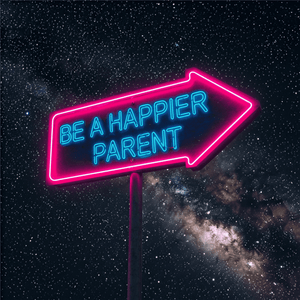
Descarga la app gratuita: radio.es
- Añadir radios y podcasts a favoritos
- Transmisión por Wi-Fi y Bluetooth
- Carplay & Android Auto compatible
- Muchas otras funciones de la app
Descarga la app gratuita: radio.es
- Añadir radios y podcasts a favoritos
- Transmisión por Wi-Fi y Bluetooth
- Carplay & Android Auto compatible
- Muchas otras funciones de la app


Be a Happier Parent
Descarga la app,
Escucha.

